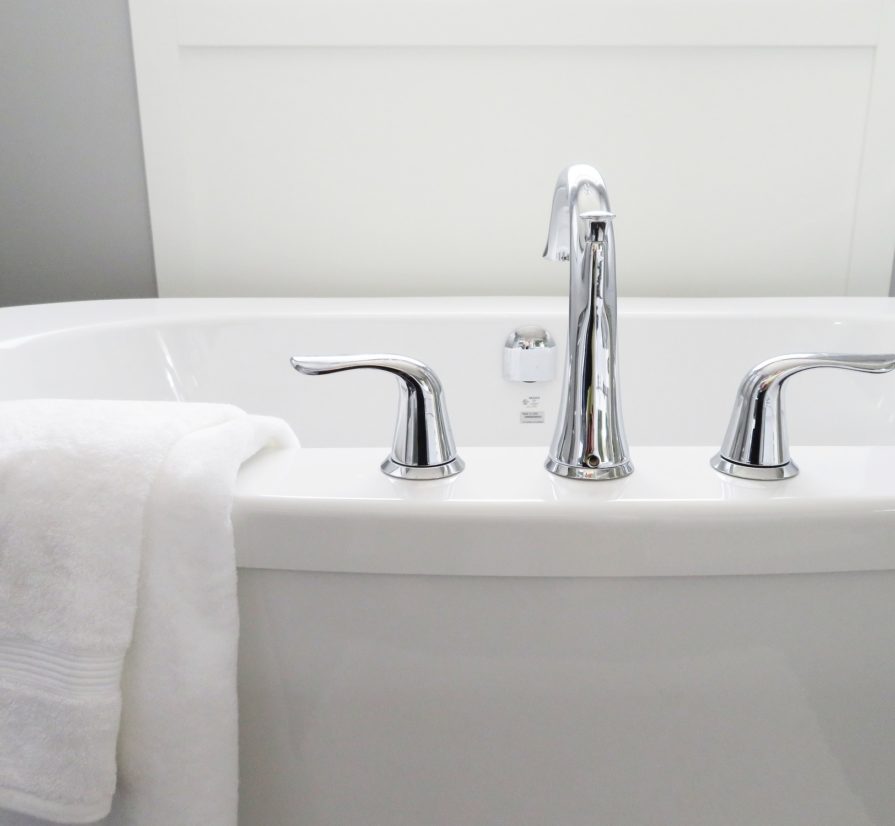
How To Acquire Sustainable Plumbing
Most people dread doing housework, but we also don’t want our plumbing fixtures to suffer. A lot of this stress can actually come from the fact that many homeowners don’t know the best way to care for their fixtures. The truth is you don’t need to rely on harsh chemicals to ensure spotless and sustainable plumbing.
We at Mr. Plumber would like to share some tried-and-true methods to maintain your system while avoiding damages, unnecessary costs and unsustainable decisions. Set yourself up for the future by integrating green plumbing into your San Antonio home!
1. Practice Green Plumbing Cleaning
Do you know how easy it can be to clean while minimizing waste? Very rarely do you actually need harsh chemicals for thorough cleaning. Instead, there are some simple strategies you can use to clean your appliances while remaining efficient and eco-friendly. At the end of the day, these tactics can also save you money.
How To Clean Shower Heads
For chrome and stainless steel shower heads, fill a plastic bag with white vinegar. Use a rubber band to submerge the fixture in the bag. Leave the bag around the fixture for no more than an hour. Rinse it off with water and dry it with a soft cloth to eliminate water stains.
Brass shower heads don’t require cleaning with anything other than water. In fact, using certain chemicals can cause abrasive damage to the material. Check with the manufacturer to see what it recommends.
You should avoid using rough materials when cleaning or wiping down fixtures, as these can leave scratches.
Tips For Cleaning Sinks
You utilize your sinks often, from washing your hands to rinsing off food ingredients. When it comes to cleaning sinks, keep these tips in mind:
- Minor stains and soap scum can be removed by mixing vinegar and water.
- Large stains can be cleaned with a mixture of baking soda and water.
- Dry the sink with a soft cloth to decrease water marks and stains.
Regardless of a stain’s severity, cleaning it quickly ensures it won’t become harder to remove.
How To Clean A Toilet
Many homeowners tend to clean their commodes with bleach. However, this chemical is harsh and can be harmful to the environment. A few eco-friendly ways to clean your toilet include:
- Vinegar and water can remove stains around the fixture’s exterior.
- Water and a mild dish soap will remove stains on the toilet seat.
- Use two cups of white vinegar and three tablespoons of baking soda to clean the bowl, and scrub the inside with a toilet brush.
As unflattering as cleaning your toilet might feel, doing so keeps it presentable and, more importantly, operational.
Methods For Cleaning Bathtubs
A simple, homemade concoction should be able to handle most bathtub cleanings. It’s best to use one cup of vinegar for every cup of water. With deeper stains, try using baking soda and water as a cleaning agent.
Mixing dish soap and water is another method for cleaning these gentle surfaces. Make sure to dry the material with a soft cloth to eliminate streaking and water marks.
The golden rule for cleaning is consistency! The more often you tend to your fixtures and appliances, the more attractive and functional they’ll be.
2. Eliminate Water Waste
Cleaning isn’t the only method for keeping sustainable plumbing. Wasting water is one of the most eco-damaging things you can do. Minimizing water waste is important for maintaining green practices. There’s a lot more you can do than turn off your faucets when they’re not in use.
Leaks in your system can be small, but even the tiniest leaks will waste high amounts of water over time. The clearest signs of leaks are usually dripping taps, high utility bills and mold growth.
To have costly water leaks found and repaired, you can contact the professional plumbers at Mr. Plumber.
3. Get Eco-Friendly Plumbing Upgrades
Why settle with what you have when you can give your fixtures eco-friendly updates? Green maintenance is efficient enough on its own, but when your fixtures themselves are helping the environment, that’s hard to beat.
Faucet aerators are a good way to tone down unnecessary water flow. You can bring similar quality to your toilet by installing a low–flow toilet. A tankless water heater can provide you with hot water without wasting excessive energy.
There are plenty of sustainable options on the market to reduce how much water you use. These energy-efficient fixtures will help you save money while also benefiting the environment.
Get The Best Plumbing Services In San Antonio
Regularly maintaining and cleaning your plumbing fixtures ensures regular and efficient operation. Adapting to eco-friendly upkeep is an excellent form of maintenance all on its own.
No matter what your system needs, what you need is a reliable plumbing company to keep it all in its best shape. Mr. Plumber and our expert technicians are just a call away. Reach out to us today!

